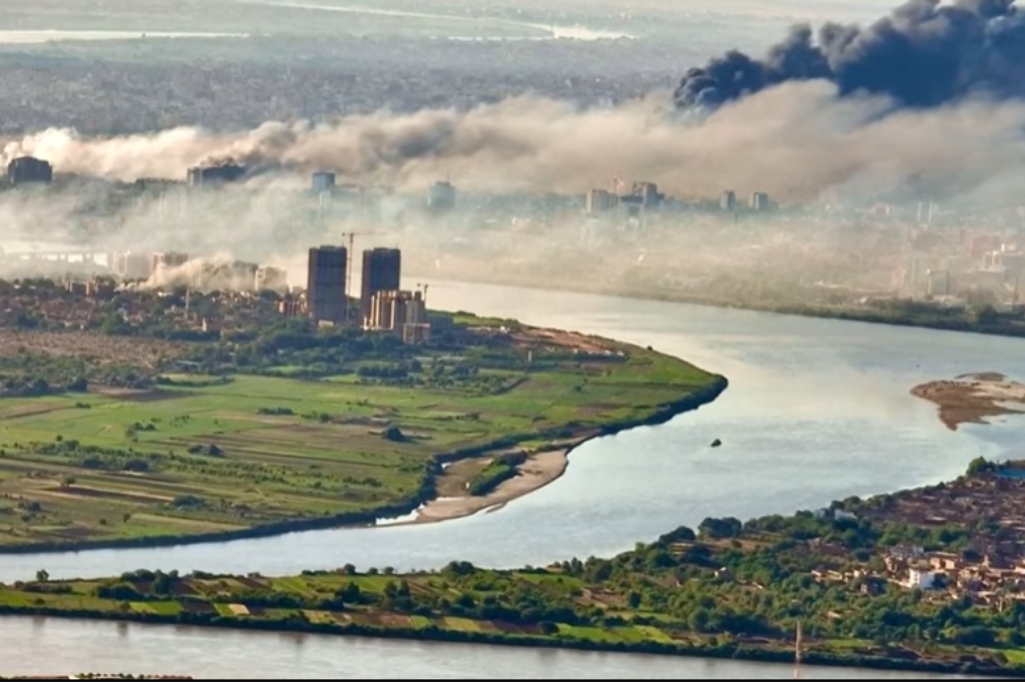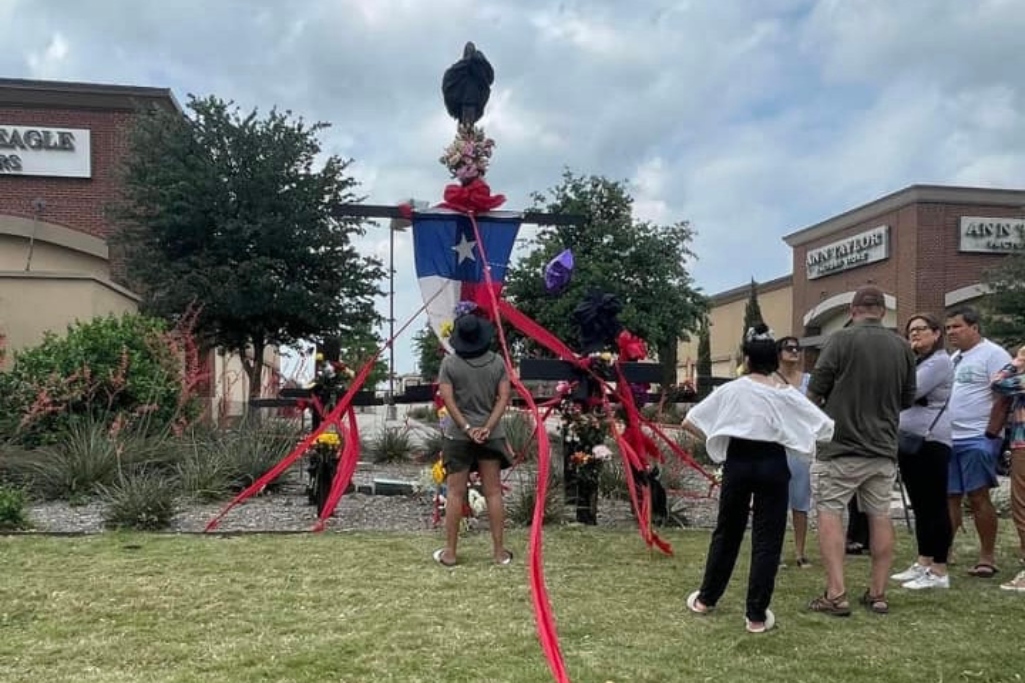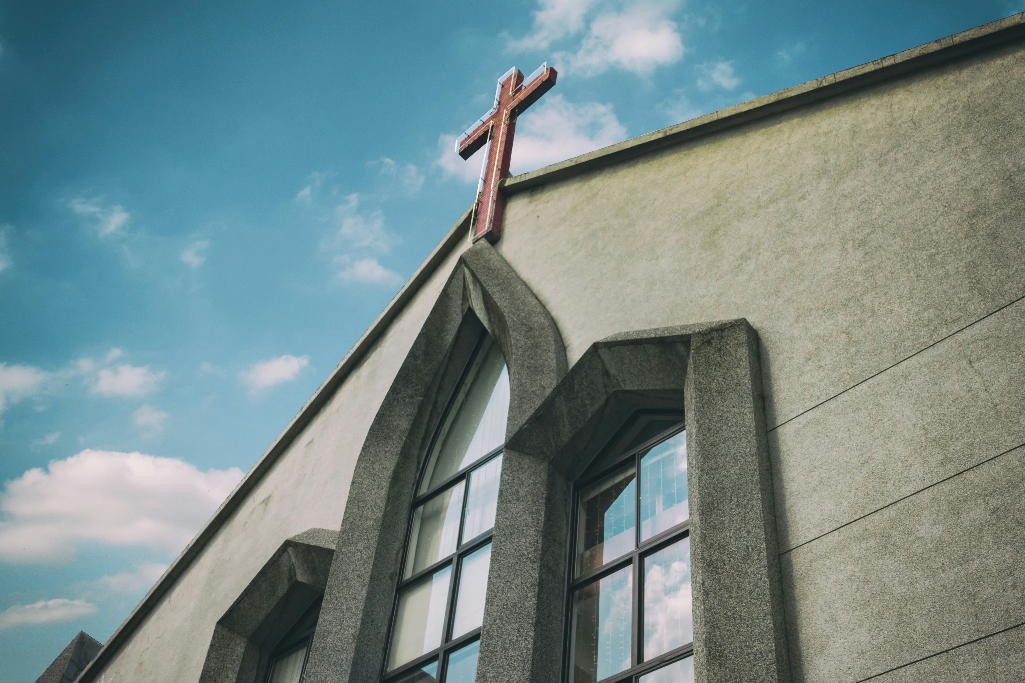
Violence, including explosions, has increased in Khartoum, Sudan, in recent days. At least four churches have been destroyed. Screen capture from The Guardian.
KHARTOUM, Sudan (BP) — At least four churches have been destroyed and a congregation directly assaulted in Sudan, signaling the earliest reports of religious suffering in the fight for governmental control that erupted April 15.
While it’s not clear whether the damages are the result of targeted religious persecution in the country that has failed to find democracy through decades of civil war, religious liberty advocates have expressed concern.
Todd Nettleton of Voice of the Martyrs (VOM), a ministry supporting persecuted Christians globally, said the fighting that has killed hundreds of civilians could provide a cover for targeted attacks on Christians.
“One of the dangers of the situation in Sudan is that persecution and targeting of churches and Christians can be ‘disguised’ in the midst of airstrikes, missiles and gunfire,” said Nettleton, host of VOM Radio and VOM’s chief of media relations and message integration. “VOM contacts know of at least four churches in Sudan that have been destroyed since the fighting began. While it’s difficult to determine if the churches were specifically targeted, we don’t hear reports of mosques being destroyed, so it seems enemies of the Gospel are taking advantage of the fighting and chaos to target churches.”
Christian Solidarity Worldwide (CSW), a ministry advocating globally for religious freedom, told of an assault by the paramilitary Rapid Support Forces (RSF) on an individual congregation to seize church facilities.
“Places of worship have also been violated,” CSW said in an April 27 press release. “CSW learned that on 17 April an Anglican church in central Khartoum was seized as a military base by suspected RSF fighters, who damaged six cars, and forced 42 people who were sheltering there, and who included the church leader and his family, to leave the building after physically assaulting several of them. The church is a five-minute drive from the army headquarters. In Bahri, Khartoum North, the Evangelical Church was bombed and partially burned.”
At least 291 civilians had been killed in the conflict between the RSF and the Sudanese Army as of April 26, according to the Sudanese Doctors Syndicate. Christians are included in the number, as Khartoum – ground zero of the conflict – is a main city for Christians in the majority Sunni Muslim country.
“VOM contacts say an increasing number of Christians have been killed in the fighting,” Neddleton said. “Again, it is hard to determine if Christians are specifically being targeted. Sources also report injured Christians are being turned away at state hospitals, and that Christians are being denied food relief that is being provided to Muslim citizens.”
The current fighting in Sudan began within days of a scheduled transitional government aimed at establishing democracy in the country after several failed attempts to strengthen human rights there. Sudan suffered decades of civil wars that began in the mid-20th Century before the country split in 2011, establishing Sudan as a majority Muslim north and a majority Christian South Sudan.
The current fight for control is exacerbating preexisting violence in Sudan, CSW said.
“While fighting is severe in areas across the country, the situation in the fragile Darfur region, where levels of violence were already worrying prior to the outbreak of current hostilities, is particularly alarming,” CSW said in its press release. “Not only does the RSF have a substantial presence in the area; in El Geneina, western Darfur, the SAF has aggravated ethnic tensions by withdrawing its forces to other affected areas while the police handed weaponry to members of African tribes, who have had no choice but to defend themselves against RSF, which consists of predominately Arab tribes.”
Christians can pray, Nettleton said, for God’s protection over Sudanese Christians, for a peaceful solution to the newest conflict, for a long-term political solution that allows more religious freedom in Sudan, and for “wisdom and discernment for church leaders as they shepherd their flocks during this very difficult season.”
(EDITOR’S NOTE – Diana Chandler is Baptist Press’ senior writer.)


